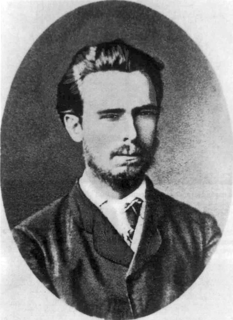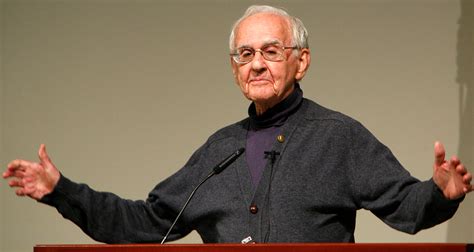A Quote by Emma Goldman
The inherent tendency of the State is to concentrate, to narrow, and monopolize all social activities; the nature of revolution is, on the contrary, to grow, to broaden, and disseminate
itself in ever-wider circles. In other words, the State is institutional and static; revolution is fluent, dynamic.
Related Quotes
There are those, on the one hand, who hope to achieve the social revolution through the State by preserving and even extending most of its powers to be used for the revolution. And there are those like ourselves who see the State, both in its present form, in its very essence, and in whatever guise it might appear, an obstacle to the social revolution, the greatest hindrance to the birth of a society based on equality and liberty, as well as the historic means designed to prevent this blossoming.
The Bolshevik revolution was a counter-revolution. Its first moves were to destroy and eliminate every socialist tendency that had developed in the pre-revolutionary period. Their goal was as they said; it wasn't a big secret. They regarded the Soviet Union as sort a backwater. They were orthodox Marxists, expecting a revolution in Germany. They moved toward what they themselves called "state capitalism," then they moved on to Stalinism. They called it democracy and called it socialism. The one claim was as ludicrous as the other.
The word 'revolution' first brings to mind violent upheavals in the state, but ideas of revolution in science, and of political revolution, are almost coeval. The word once meant only a revolving, a circular return to an origin, as when we speak of revolutions per minute or the revolution of the planets about the sun.
...it was always our view that in order to attain this [proletarian revolution] and the other far more important aims of the future social revolution, the working class must first take possession of the organised political power of the state and by its aid crush the resistance of the capitalist class and organise society anew.
First, what is a revolution? Sometimes I'm inclined to believe that many of our people are using this word "revolution" loosely, without taking careful consideration [of] what this word actually means, and what its historic characteristics are. When you study the historic nature of revolutions, the motive of a revolution, the objective of a revolution, and the result of a revolution, and the methods used in a revolution, you may change words. You may devise another program. You may change your goal and you may change your mind.
The white man knows what a revolution is. He knows that the Black Revolution is worldwide in scope and in nature. The Black Revolution is sweeping Asia, is sweeping Africa, is rearing its head in Latin America. The Cuban Revolution - that's a revolution. They overturned the system. Revolution is in Asia, revolution is in Africa, and the white man is screaming because he sees revolution in Latin America. How do you think he'll react to you when you learn what a real revolution is?
When you think of power, you think the state has power. When you look at it in terms of revolution, in terms of the state, you think of it in terms of Russia, the Soviet Union, and how those who struggled for power actually became victims of the state, prisoners of the state, and how that led to the dissolution of the Soviet Union. We have to think of revolution much more in terms of transitions from one epoch to another. Talk about Paleolithic and Neolithic.
When you think of power, you think the state has power. When you look at it in terms of revolution, in terms of the state, you think of it in terms of Russia, the Soviet Union, and how those who struggled for power actually became victims of the state, prisoners of the state, and how that led to the dissolution of the Soviet Union. We have to think of revolution much more in terms of transitions from one epoch to another.
Biomimicry is innovation inspired by nature. In a society accustomed to dominating or 'improving' nature, this respectful imitation is a radically new approach, a revolution really. Unlike the Industrial Revolution, the Biomimicry Revolution introduces an era based not on what we can extract from nature, but on what we can learn from her.
The only form of revolution beneficial to the people is one which destroys the entire state to the roots and exterminates all the state traditions, institutions and classes…. Day and night [the revolutionary] must have but one thought, one aim – merciless destruction…for him morality is everything which contributes to the triumph of the revolution. Immoral and criminal is everything that stands in its way.
Somehow, the agenda has been put into the form of talking about a set of transitions from state A, the present, to a state B that's sustainable. The problem is that there is no such state. You have to assume that the transitions are going to continue forever and ever and ever. You have to talk about systems that are continuously dynamic, and that are embedded in environments that themselves are continuously dynamic.































